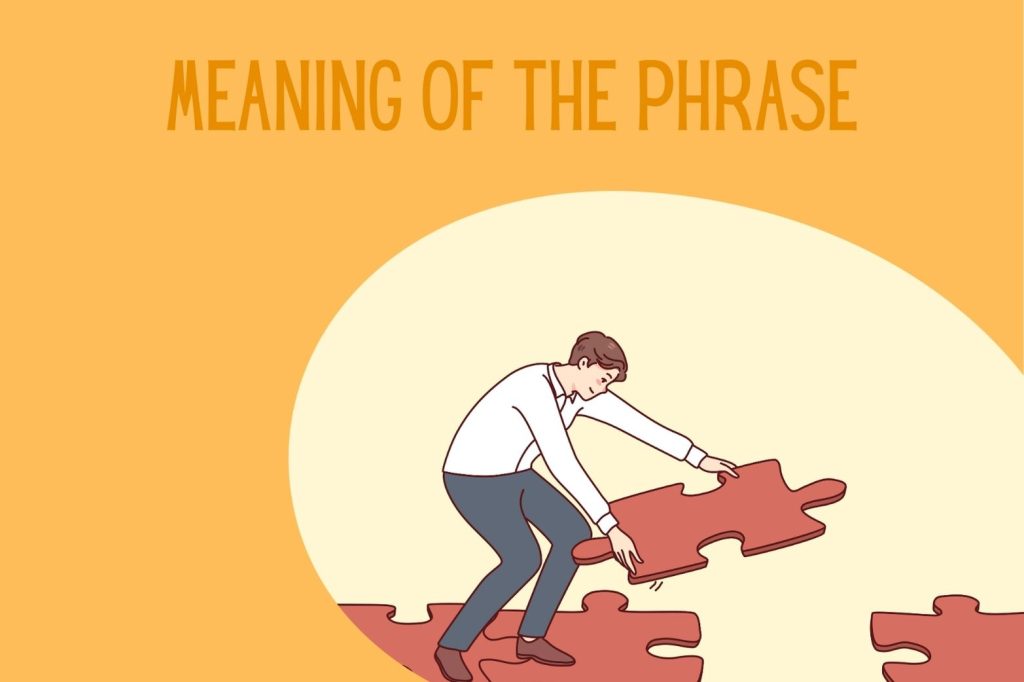Setting: The phrase “back to square one” notes that one has to make a fresh start. It records the alternative meaning of beginning from the ground up, starting back from somewhere, or having gone back with progress.
It is much more commonly using within the corridors of general conversations, business environments, sports fields, and institutions of learning.
The next pertinent question is what gave life to the phrase and what made it one of the most popular idioms?
This article will discuss the meaning of the expression ”back to square one.” How to use it, its etymological background, and some theories on its possible origins and evolving nature.
Meaning of the Phrase

The expression “back to square one” means to return to the initial steps of one’s activity or process following the failure of some attempt or an unsuccessful result.
It indicates that past endeavors to move forward proved futile, and starting again may be necessary. This phrase usually expresses disappointment.
But it may also suggest the opportunity for a fresh start toward correcting the error and attacking a task with more learning experience.
Examples of the Sentence
1. We returned to square one after months of negotiations that failed to produce anything.
2. The experiment’s failure due to the maths error sent the team back to square one.
3. They had repeatedly changing their sales strategy without benefit; it was back to square one.
4. The technical failure caused the loss of the novel’s draft. Forcing the writer to start from scratch and write it all over again.
5. The team’s failure to bid on an important match put them back at square one on their path to winning the championship.
6. The company had to return to square one with their blueprints after so many regulatory challenges because the mess in the building project had got so bad.
7. Whenever they thought they had to solve the riddle. Some new clue dashing their theory and sent them back to square one.
Origin and History

The phrase “back to square one” is thought to originate in the early to mid-20th century. A number of alternative theories present various scenarios for its emergence.
Including those of radio football commentary, board games, hopscotch, and even early newspaper cartoons.
Whatever the case, it is perhaps more significant that the phrase has become widely used and applied in many contexts around more personalized versions of English.
1. Radio Commentary and Football
One of the more common expositions for the source of “back to square one” deals with historic BBC radio football commentary in the 1920s and 1930s.
Prior to the advent of television, matches were being radio-commentary in real time.
The pitch was broken into squares to help listeners follow the action, and commentators would reference these squares whenever the ball was moving around the field.
So, when a team has to retreat back to its goal area (Square One). It is actually starting its play again. But with the disadvantage of having to start from Square One.
Yet there is little direct evidence to show that such a system was formally employ by BBC radio.
Some linguists have sidelined the theory as an avenue of plausible origin. Nonetheless, the idea still lingers among many as a possible route by which the phrase gained favor.
2. Board Games
Another leading idea is linking the phrase to board games like Snakes and Ladders. In these, players advance by rolling a die. But landing on a certain square could send them back to the beginning.
The notion behind this expression probably flows from the players’ vexation at having to start again only to see such happenings in real life.
Other board games spanning many cultures share the aspect of returning to the beginning. Enhancing the likelihood that games could have played a part in the phrase’s origin.
3. The Hopscotch Theory
Some etymologists propose that “back to square one” comes from a children’s game, hopscotch.
Wherein players hop across numbered squares inscribed on the ground. If a player is wrong or loses balance. The player has to return to the first square and start again.
Since hopscotch has been playing for ages, it must be that the phrase escaped from it and metaphorically adjust to repeat whichever process. This would seem especially credible since a direct correlation exists between numbered squares and going back to the start.
4. Early Newspaper Comics
Another possible source finds the phrase in early newspaper comics, which illustrated events in numbered boxes. The reader followed a story from box to box.
If a character suffers a setback, he might be seen going back to the initial square. As if to indicate starting anew or losing ground.
This way of storytelling might have contributed to the general use of “back to square one” as a term signifying starting over.
5. Earliest Printed Record
Although its origin is disputing, one of the earliest printed references to “back to square one” emerging sometime in the mid-20th century.
Newspapers, books in the spoken word. The phrase dominated its journey far and wide, claiming its rightful place in standard English.
6. Citation Snippet
The phrase “back to square one” was one of the earliest printed instances in the UK newspaper The Guardian, in a 1952 edition.
It is reportedly to use to rehash a political debate. The phrase increased in popularity over the years in many different media. Such as the pages of books, films, or even public addresses.
In fact, the 1950s and 1960s vogue also had a number of publications that borrowed their usage of the term in describing busted economies.
Failed policies, and displaced technologies that had to be totally rewritten. The different-from-the-concept of it still depends on the dying-word end-pole. Where spinsters of a country, such couples to take in, the meaning, life is:
1. Business and Economics: Used to refer to failed ventures which need to be approached differently.
2. Science and Technology: Most frequently invoked with regard to failures in experiments or advances in technology that have not thrived.
3. Sports: This term is used when a team loses a match and has to start again on its journey towards a championship.
4. Personal Life: This is also a term for failure in career, relationships, or self-development.
Such application elasticity has proved that “back to square one” may hold such meaning over many generations and spheres of life.
In Conclusion!
The expression “back to square one” posits dubious origins, but its clear meaning and popular use are evident.
Whether from radio football reports, board games, hopping skippingly, newspaper cartoons, or something else.
This expression tags the cascades of frustration and the need to start again after some dismal attempt.
Knowing such phrases makes us appreciate language more and appreciate how they originate from various cultural and historical contexts. Be it in sports, business, or life itself, “back to square one” is an idiomatic expression that is popularly and universally known to describe setbacks and new beginnings.
So, as languages continue to advance, this quotation will surely stay with us to remind us that setbacks are inconvenient but also are chances to gain and approach obstacles with a different perspective.
READ MORE:
- Suite vs. Suit: Understanding the Difference and Usage
- Burnt vs. Burned: Understanding the Difference and Proper Usage
- Motivation Speech Topics: Topics That Inspired Lives Throughout Centuries
